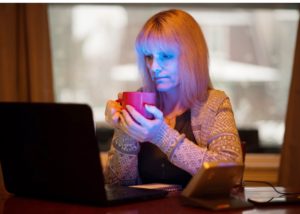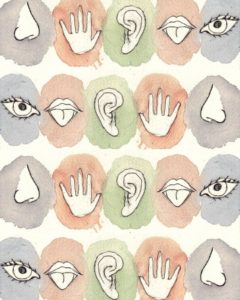But of course, you continue with the façade of getting “ready” for school to avoid a row and now you’re sitting at the breakfast table eating your Weetabix, intently listening to the radio, praying for the presenter who officially declares a snow day and schools will be shut. Yes!
Was that not just the best feeling in the world? Especially when it lasted for a couple of days.
I’ve got to admit when our organisation informed us we would be working from home mid-March due to COVID and the nationwide lockdown, I did that same happy dance my eleven year old self would have done when a snow day was declared. Working from home was so appealing for many reasons. I’d save time and money commuting, I didn’t have to face the brunt of Scotland providing four seasons in one day and a quiet house would increase productivity and motivation, right?
Between then and now there have been good days, bad days, and those blurry days that didn’t seem to end. However, here we are, nine months later and winter has well and truly set in. Usually, I wouldn’t admit this to an open forum. I prefer to make people smile and laugh but right now and for the last few weeks I’ve been struggling, more than I care to admit. I love winter, I really do but with winter comes SAD and if you haven’t guessed it COVID restrictions and SAD do not mix well together.
Seasonal affective disorder (SAD) is a type of depression that comes and goes in a seasonal pattern. Alternatively known as “winter depression.” Symptoms of SAD can include:
- A persistent low mood
- A loss of pleasure or interest in normal everyday activities
- Irritability
- Feelings of despair, guilt, and worthlessness
- Feeling lethargic and sleep during the day
- Sleeping for longer than normal and finding it hard to get up in the morning
- Craving carbohydrates and gaining weight
If you’ve been feeling any of the above symptoms trust me you’re not alone. So, the question is how can we help each other to help unload the burden SAD brings to our colleagues and ourselves during these unprecedented times?
Get outside during daylight
If the decrease in daylight hours is affecting your mood, try to make the most of them and get outside when you can. Even a cloudy day will provide your body with the light it’s craving. So whether it’s the first thing you do when you get up in the morning or something you fit into your lunch break, wrap up warm and head out into the great outdoors.
Brighten up your environment
Make a conscious effort to let in as much sunlight to your working environment as possible. Open any curtains or blinds and sit by a window. As well as making your environment bright, you could also try bringing the outside world in with some indoor plants to feel a bit closer to nature.
Eat well
It’s important to eat a healthy, balanced diet to make sure your brain gets everything it needs to function properly. Try to eat little and often, and drink enough water throughout the day to help keep your brain energised and hydrated.
Exercise
Doing regular physical activity can help with low mood as well as improve your physical health. Anything is better than nothing.
Keep in contact
If you have SAD, you might find it difficult to keep up contact with your friends and family members. Arranging regular catch-ups in advance might help you to overcome this. You don’t have to do anything too complicated. Try a short video coffee date or a socially distanced walk at the weekend. Let your loved ones know how you’re feeling, so they can support you when you need it.
Have a self-soothe plan for tough days
If you recognise patterns of feeling low, it can help to plan for those difficult days. This might include some self-soothing measures – things that you know help comfort you. It might be wearing soft and comfortable clothes, using a notebook to write down your thoughts, or having a list of favourite films to watch. You might also think about rearranging meetings or events for another time or planning some relaxing activities. Think about what might work well for you.
And remember it’s okay not to be okay.



